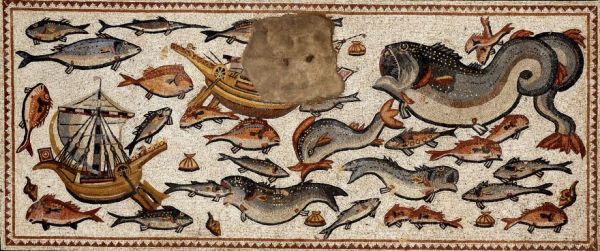
Israeli archaeologists Yonatan Adler and Omri Lernau teamed up to glean insights into fish remains that were found among the relics of ancient Judea. The kinds of fish the residents ate during that time give us a glimpse into how kashrut, or Jewish dietary law, was adopted by the communities.
Now, in a study published today in the journal Tel Aviv, the pair reveals that ancient Judeans, in a period that spans throughout much of the first millennium B.C., enjoyed a diet that didn’t fully adhere to Jewish kosher laws. According to the study, archaeologists have found the remains of three non-kosher species in the two ancients Judean settlements—the Kingdom of Israel in the region’s north and the Kingdom of Judah in the south. Judah residents in particular ate a lot of catfish. These findings help scientists and historians build a more complete picture of how the ancient Judean cultures developed and adopted these rules.
According to rabbinic tradition, Moses, the most important prophet in Judaism, received the commandments that outlined how to live life as a Jew sometime around the 13th century B.C. Scholars don’t know exactly when these rules and practices were written down into the Torah, but in his upcoming book, Adler argues that evidence for its observance does not appear until the Hasmonean period that lasted from 140 B.C. to 37 B.C. And the point in history at which Judean citizens adopted the dietary rules prescribed in Torah into their lifestyles, essentially becoming kosher, is also not certain.
Besides not knowing when the rules of keeping kosher were written down, we don't know when they became accessible to the masses, who were largely illiterate. But the story of the remains found in archaeological digs may help scientists figure that out. Read more about the research at Smithsonian.






Me ? I eat what I want, bacon, sheep, cows, fish ... don't care for shellfish, well, except for deep fried battered scallops ... and when I died in the last life I did not even get overly warm.
Makes you think ?